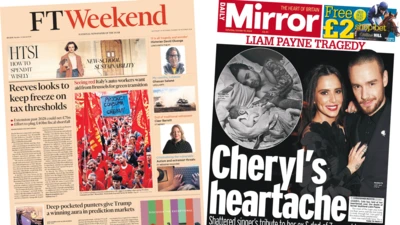We've updated our Privacy and Cookies Policy
We've made some important changes to our Privacy and Cookies Policy and we want you to know what this means for you and your data.
NI health: Free eye and dental care 'flawed' on benefits
Image source, Nicola Coburn
- Author, Rebekah Logan & Maria McCann
- Role, ΒιΆΉΤΌΕΔ NI News
The way to access free sight and dental treatments in Northern Ireland is "flawed", a County Down woman has said.
Nicola Coburn, from Culcavy, described the application for help with costs for benefit claimants as "convoluted".
Concerns have been raised by optometrists that vulnerable people could miss out on basic healthcare.
Last month, about 150,000 people lost their automatic entitlement to free eye and dental care when they moved to universal credit (UC).
The Association of Optometrists (AOP) said it expected a further 70,000 people will be affected by the "legal technicality" when they move from legacy benefit systems.
It added people must complete a 22-page form which can take weeks to be processed with no guarantee of approval.
Nicola became a UC claimant after leaving work to help care for her daughter in 2019.
She said she became aware of the difficulties in accessing eye and dental treatments after noticing changes to her sight.
"I was getting different advice as to what needed to happen," she told ΒιΆΉΤΌΕΔ News NI.
"It took maybe five or six weeks before I eventually discovered it was a HC1 form I needed to submit and then I still didn't know where to send it.
"I consider myself fairly tech savvy and I know how much I struggled. I dread to think how hard it is for people to get the information they need."
Nicola said she was eventually told her request for help with healthcare had been approved but "it probably took three or four months".
'Diabolical'
AOP Chief Executive, Adam Sampson, described it as a "diabolical situation".
"We're talking about thousands upon thousands of people, some of the most vulnerable in society, being excluded from eye care and dental care - a vital service enabling them to continue working, driving, looking after their children and loved ones.
Image source, Getty/aire images
"That's not to mention the number of people who will simply stop making sight test appointments for them and their children for fear of the cost.
"We could be facing a backlog of people getting diagnosed and accessing treatment far too late."
Mr Sampson said the problem does not exist in the rest of the UK and called for the Department of Health "to act immediately to enable automatic entitlement on Universal Credit, which simply matches the approach in England, Wales and Scotland".
A Department of Health spokesperson acknowledged "the concerns expressed about access to help with health care costs, particularly in the context of the migration of benefits to universal credit".
"We will work with stakeholders to see if the process for the interim solution - the form HC1 - can be improved," they continued.
"We also accept that a longer-term solution is required. This will require a decision on whether or indeed which income threshold might apply to universal credit recipients for help with health care costs eligibility.
"Further work is required to take into account a number of factors including comparisons with other jurisdictions, as well as the cost implications for the different eligibility options."
Top Stories
More to explore
Most read
Content is not available







